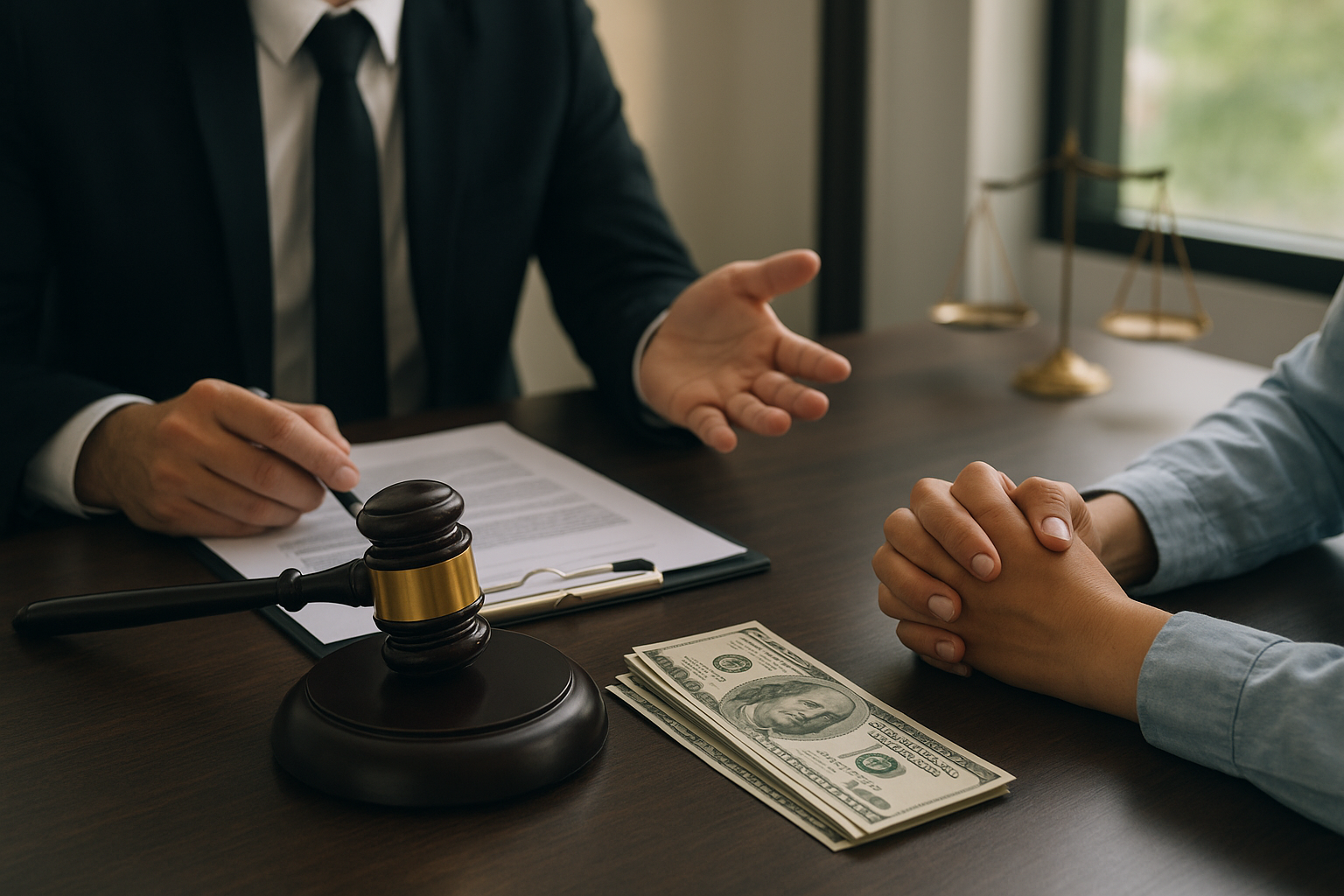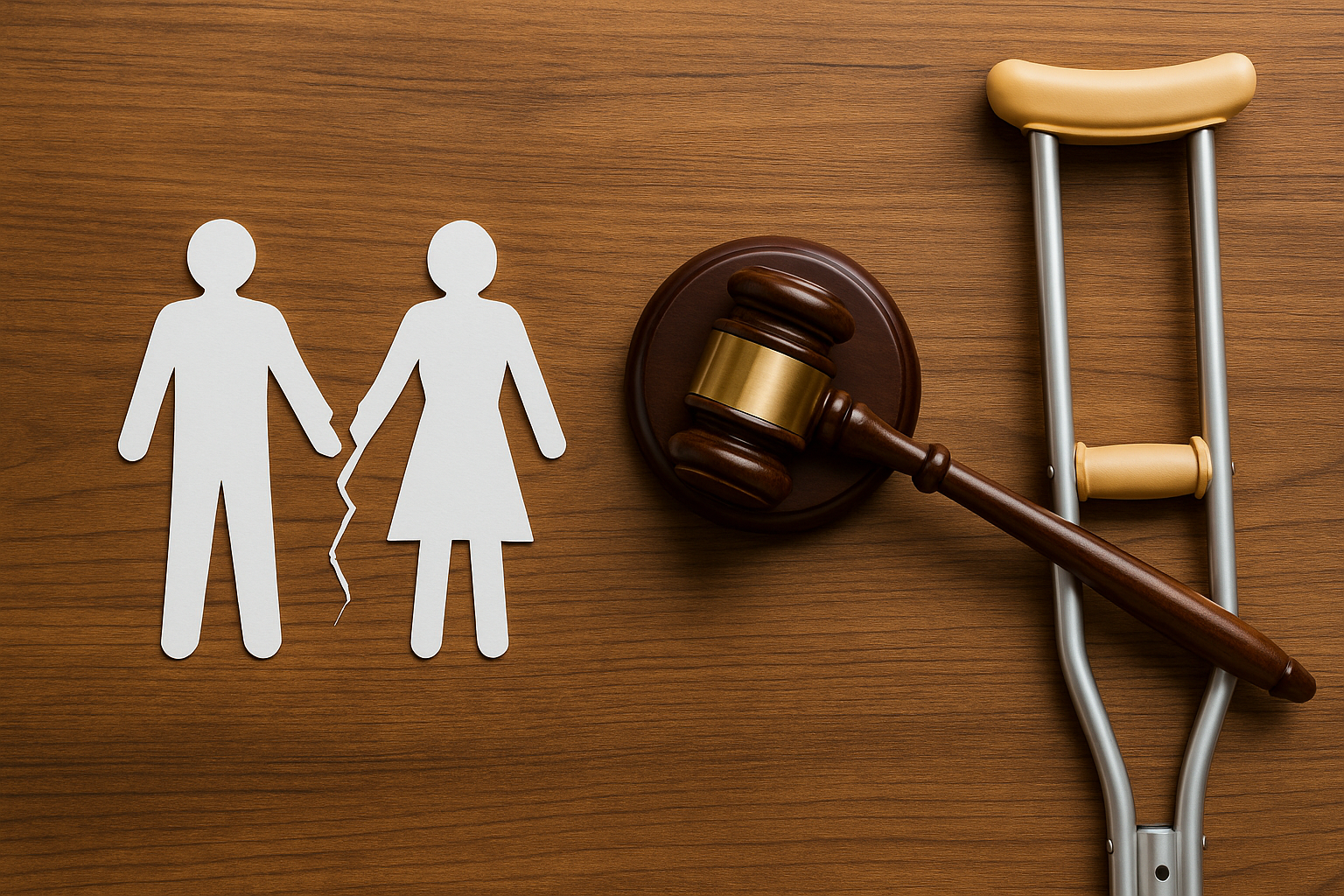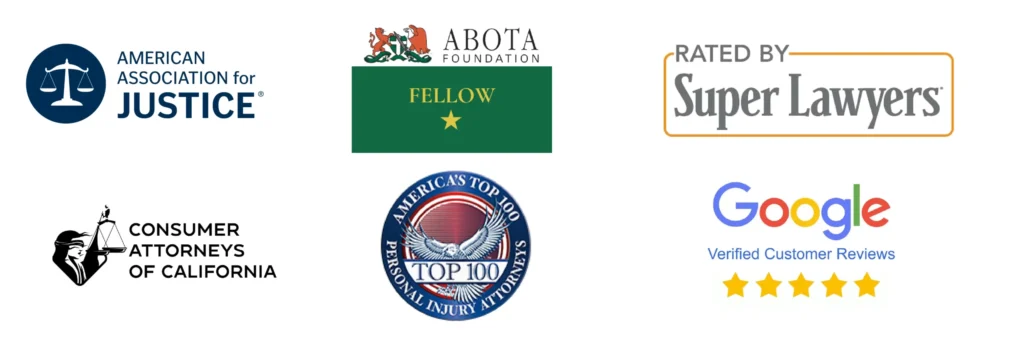Hiring a lawyer is an important decision after an accident, but one of the first questions most people ask is: How much does a personal injury lawyer cost in California? Understanding the fee structures and costs can help you make informed choices and ease your concerns about affordability.
Why lawyer costs matter in personal injury cases
After an accident, financial stress can be overwhelming. Victims may face medical bills, lost income, and ongoing treatment expenses. The thought of adding legal fees may feel daunting, which is why it is important to understand how lawyers typically charge.
The right attorney ensures your case is pursued without unnecessary financial strain. California personal injury lawyers often work on a contingency fee basis, meaning payment is tied directly to your success. This approach makes legal help accessible to those who may not otherwise afford representation.
What is a contingency fee arrangement?
A contingency fee is the most common fee structure in California personal injury cases. Under this arrangement, the lawyer does not get paid unless you recover compensation through settlement or trial.
Typically, contingency fees range between 30 to 40 percent of the recovered amount. The exact percentage depends on the complexity of the case, whether it goes to trial, and the agreement signed with your attorney.
Advantages of contingency fees:
- No upfront payment required
- Lawyer is motivated to win since their fee depends on your outcome
- Allows access to legal representation regardless of financial situation
Factors that influence lawyer costs in California
Not all cases are the same, and several factors can affect how much your lawyer ultimately charges. These include case complexity, length of litigation, and whether the case goes to trial.
Cases that settle early often have lower fees since less time and resources are required. If trial preparation is necessary, fees may be at the higher end of the range due to added work.
Key factors include:
- Case complexity: More complicated cases, such as those involving multiple parties or disputed liability, typically require more time and resources.
- Stage of resolution: Cases that settle before trial usually cost less compared to those requiring courtroom litigation.
- Evidence and expert witnesses: Extensive evidence gathering, medical evaluations, or expert testimony can increase costs.
- Length of litigation: Longer cases with multiple hearings, motions, or appeals often demand higher legal fees.
- Lawyer’s experience and reputation: Attorneys with strong track records may charge higher percentages due to their expertise.
- Geographic location: Fees can vary depending on whether the case is handled in urban areas with higher costs or smaller regions with lower rates.
How expenses and costs are handled
In addition to attorney fees, cases often involve costs such as filing fees, expert witnesses, and medical record retrieval. These expenses can add up quickly, especially in complex cases where multiple specialists are needed to testify or large volumes of records must be reviewed.
Some law firms cover these costs upfront and deduct them from your settlement at the end. This allows clients to move forward without worrying about paying out-of-pocket during the case. Others may require partial contributions while the case is active, which can be more challenging for clients already facing financial strain.
Common expenses in a personal injury case include:
- Court filing fees
- Costs of serving legal documents
- Fees for obtaining medical records and police reports
- Expert witness charges
- Deposition and transcript costs
- Travel expenses for witnesses or attorneys
It is important to ask your lawyer how these costs will be managed. A clear written agreement should explain whether the firm advances expenses, how deductions will be applied, and whether you are responsible for any balance if the case does not succeed. Transparency upfront prevents confusion later.
Comparison of contingency fees vs. hourly billing vs. flat fee
While contingency fees are standard in personal injury law, some lawyers may charge hourly rates or flat fees for certain services. Understanding the difference helps you see why contingency is often the most affordable route.
| Fee Structure | How It Works | Pros | Cons |
|---|---|---|---|
| Contingency Fee | Lawyer is paid a percentage of settlement or verdict | No upfront cost, lawyer motivated to win | Percentage may feel high if recovery is large |
| Hourly Billing | Lawyer charges per hour worked | Predictable tracking of time | Requires upfront payments, can become expensive |
| Flat Fee | Fixed cost for specific service | Simple and clear | Rare in personal injury cases |
Common misconceptions about lawyer costs
Many people assume hiring a lawyer will be too expensive. In truth, most personal injury attorneys in California work on contingency, meaning you pay nothing upfront and only owe fees if your case is successful. This structure removes the financial risk of seeking legal help.
Another misconception is that all lawyers charge the same rate. Fees vary depending on the attorney’s experience, reputation, and the complexity of your case. While an experienced lawyer may charge a higher percentage, their skill often leads to stronger settlements that outweigh the added cost.
Some believe they will still owe money if they lose. Most firms follow a no-win, no-fee model, but it is important to ask how case expenses are handled. Clear communication ensures you understand what you will and will not be responsible for.

Questions to ask about fees before hiring a lawyer
Before signing an agreement, it is smart to ask specific questions about fees and costs. This ensures you know what to expect and prevents surprises.
Key questions include:
- What percentage will be charged if the case settles?
- Will the percentage change if the case goes to trial?
- Who pays for case-related expenses upfront?
- How are expenses deducted from the settlement?
- Will I owe anything if we do not win?
How costs affect your final compensation
Understanding how legal fees are deducted is critical to knowing what you will take home. For example, if you win $100,000 and your lawyer’s contingency fee is 33 percent, the attorney will receive $33,000 plus case expenses.
This means you should always consider the net recovery rather than just the gross settlement amount. A clear discussion of fees and expenses ensures you know the bottom line before pursuing your claim.
Why hiring an experienced lawyer is worth the cost
Although contingency fees may seem high, hiring an experienced lawyer often results in far greater compensation. Insurance companies are less likely to take advantage of victims when skilled legal representation is involved. A strong attorney can negotiate effectively and push back against low settlement offers.
An experienced lawyer also understands the legal strategies that maximize recovery. From gathering evidence to working with expert witnesses, their knowledge ensures your case is built on a solid foundation. This preparation is especially valuable if the case heads to trial, where experience often determines the outcome.
In addition, seasoned attorneys can guide clients through complex procedures and protect them from common mistakes. Their ability to anticipate challenges saves time and reduces stress. While fees are a factor, the value of a better settlement, stronger advocacy, and peace of mind often outweighs the cost.
Tips for discussing fees with your lawyer
Honest communication about fees helps build trust with your attorney. It also ensures you are comfortable with the financial arrangement before moving forward.
Practical tips include:
- Requesting a written fee agreement
- Asking for examples of how expenses are deducted
- Clarifying whether unused retainer amounts are refundable
- Reviewing the agreement with a trusted advisor if unsure
The bottom line: Affordability and value in personal injury law
Understanding how much a personal injury lawyer costs in California helps you make smart decisions about legal representation. Contingency fees make it possible to hire skilled attorneys without financial risk, while transparency about expenses ensures you know what to expect.
At Knapp Moss, we are committed to guiding clients with clarity, honesty, and dedication. Our firm covers case costs upfront and only gets paid if you recover compensation.
Contact Knapp Moss today to schedule your free consultation.
Frequently Asked Questions
Most lawyers charge between 30 to 40 percent of the recovery under a contingency fee arrangement. The exact percentage depends on case complexity and whether it goes to trial.
In most cases, no upfront payment is required since contingency fees are based on success. Some firms may cover case expenses and deduct them later.
Yes, some attorneys may be open to negotiating their fee. The final percentage should be agreed upon and written into your contract.
Yes, in most cases hiring a lawyer leads to higher settlements than handling claims alone. Skilled representation often offsets the cost through better outcomes.




